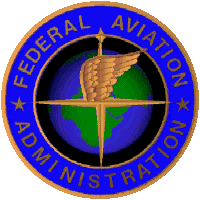Wed, Jun 25, 2003
Advertisement
More News
 Aero-News: Quote of the Day (10.23.25)
Aero-News: Quote of the Day (10.23.25)
“Sport Pilot 2.0 gives more people than ever the opening to pursue their dreams of putting themselves in the pilot seat and enjoying the unique perspectives of flight. This v>[...]
 United Airliner Likely Hit Weather Balloon, Not Space Object
United Airliner Likely Hit Weather Balloon, Not Space Object
WindBorne’s CEO Cooperating In Investigation Of Mysterious Incident After a mysterious collision with what was thought to be either an asteroid or space debris, it’s lo>[...]
 Atlanta Cops Block Attempted Shooting at Hartsfield-Jackson
Atlanta Cops Block Attempted Shooting at Hartsfield-Jackson
Man Arrested After Attempting to Bring an Assault Rifle Into the World’s Busiest Airport A 49-year-old man was arrested by Atlanta police officers for allegedly planning a ma>[...]
 Aviation Tracking Technology Bill Flies Through the Senate
Aviation Tracking Technology Bill Flies Through the Senate
Senate Commerce Committee Passes Cruz’s ROTOR Act The Rotorcraft Operations Transparency and Oversight Reform (ROTOR) Act, introduced by Chairman Ted Cruz and Ranking Member >[...]
 ALPA Praises Bipartisan Bill To Mitigate Helicopter Risks
ALPA Praises Bipartisan Bill To Mitigate Helicopter Risks
ROTOR Act Closes Loopholes And Mandate Safety Technology The Air Line Pilots Association, Int’l, issued a statement lauding a bipartisan bill introduced by Senators Ted Cruz >[...]
blog comments powered by Disqus





